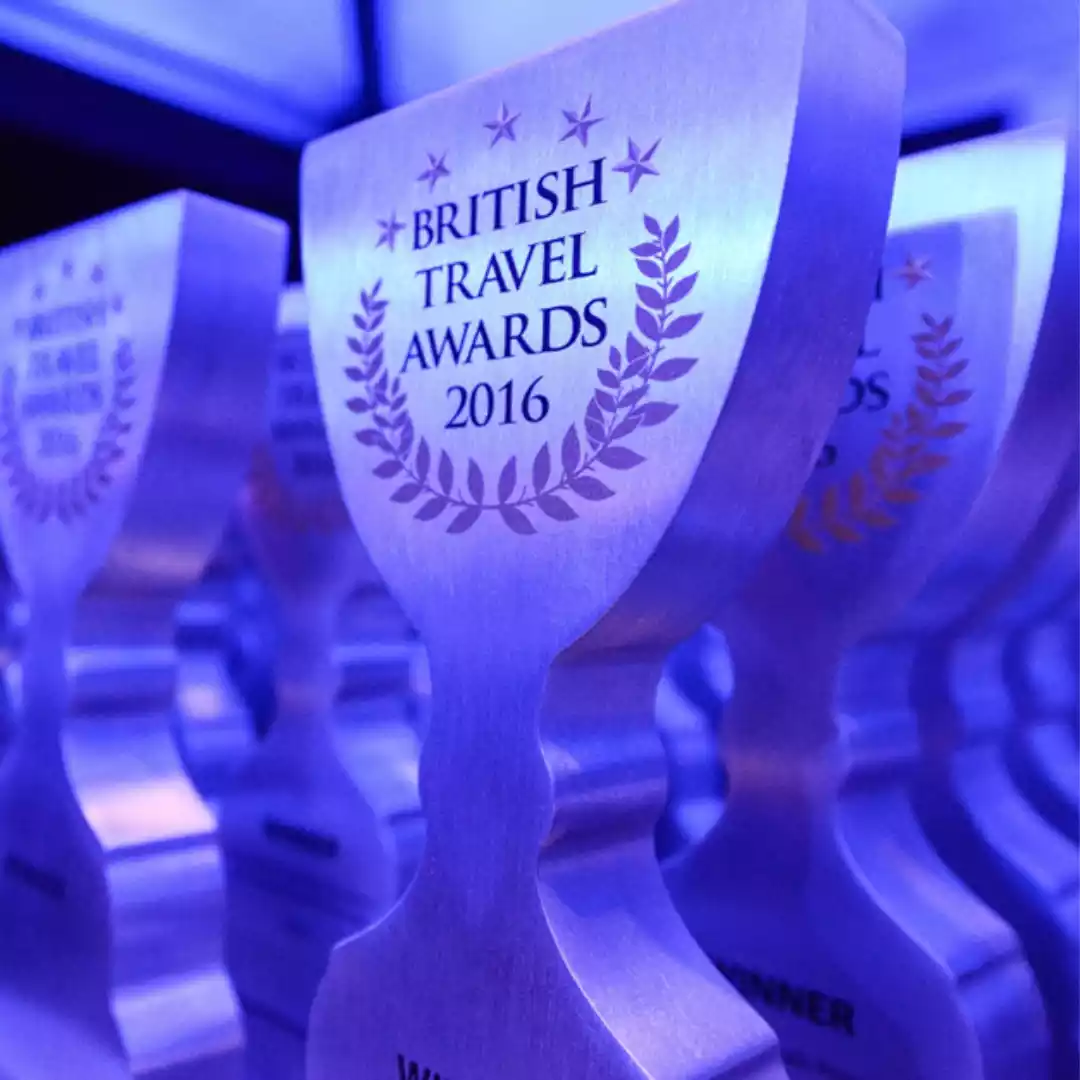If you wish to partake in any activities whilst on your trip abroad, you need to ensure you are covered.
Below are the activities that we cover as standard on all of our policies:
Please note that all of the activities are covered on a non-professional and non-competitive basis unless otherwise stated. All Activities marked with an asterisk (*) indicate those which do not have Personal Liability cover and those marked with a (‡) indicate those which do not have Personal Accident cover.
Please note that all of the activities where inshore or inshore only has been mentioned, can be classified as within 12 nautical miles of the coastline.
| Single & Multi Trip Activities | Winter Sports Activities |
|---|---|
| Abseiling – within organiser’s guidelines | Air Boarding |
| Aerial Safaris – in chartered aircraft and an organised excursion | Big Foot Skiing |
| Angling – inshore only | Skiing – cross country – recognised paths |
| Archaeological Digging | Dry Slope Skiing |
| Archery | Dry Slope Snowboarding |
| Assault Course | Glacier Skiing |
| Athletics | Glacier Walking |
| Badminton | Ice Cricket** |
| Bamboo rafting – inshore only | Ice Windsurfing |
| Banana Boating – inshore only | Langlauf |
| Bar and Restaurant Work | Skiing – mono |
| Baseball | Skiing – nordic – recognised paths |
| Basketball | Skiing – off-piste – within resort boundaries |
| Beach Games | Snowboarding – off piste – within resort boundaries |
| Billiards | Skiing – on piste |
| Blading – no stunts | Snowboarding – on piste |
| Board Sailing – inshore only | Skiing – randonnee |
| Body Boarding – inshore only | Ski Run Walking |
| Boogie Boarding – inshore only | Ski Skimming |
| Bowling | Skiing – touring |
| Bowls | Skidooing |
| Bungee Jumping | Snow Blading |
| Cable Car Ride | Shoe Shoeing |
| Camel Riding | Snow Tubing |
| Camel Trekking | Snow Zorbing |
| Canoeing – up to grade 3 waters – inshore only | Snowcat Skiing -with a professional guide |
| Canoeing – grade 4 & 5 waters – inshore only | Snowmobiling ‡* |
| Rafting – up to grade 3 waters – inshore only | Tobogganing |
| Rafting – grade 4 & 5 waters – inshore only | |
| White Water Rafting – up to grade 3 waters – inshore only | |
| White Water Rafting – grade 4 & 5 waters – inshore only | |
| Kayaking – up to grade 3 waters – inshore only | |
| Kayaking- grade 4 & 5 waters – inshore only | |
| Catmaran – inshore only | |
| Yachting – inshore only | |
| Sailing – inshore only | |
| Clay Pigeon Shooting | |
| Small Bore Target Shooting | |
| Rifle Range | |
| Climbing – on climbing wall only | |
| Cricket | |
| Croquet | |
| Cross Country Running | |
| Curling | |
| Cycling – excluding moutain biking, BMX & touring | |
| Dancing – including lesson participation | |
| Darts | |
| Deep Sea Fishing – inshore only | |
| Dinghy Sailing – inshore only | |
| Dragon Boat Racing – inshore only | |
| Elephant Trekking | |
| Elephant Riding | |
| Falconry | |
| Fell Running – up to 4000 metres | |
| Fell Walking – up to 4000 metres | |
| Fencing | |
| Fishing – inshore only | |
| Fives | |
| Flag American Football | |
| Flying – as a passenger in an aircraft (private plane, helicopter, glider) | |
| Football | |
| Frisbee | |
| Ultimate Frisbee | |
| Fruit or Vegetable Picking – under 3 metres | |
| Glass Bottom Boats – inshore only | |
| Glass Bottom Bubbles – inshore only | |
| Gliding – as a passenger with a qualified pilot | |
| Go Karting – up to 120cc, wearing a helmet | |
| Goalball | |
| Golf | |
| Gorilla Trekking – organised tours only | |
| Gym – fitness | |
| Gymnastics | |
| Handball | |
| Helicopter Rides – passenger only | |
| Hiking – up to 4000 metres | |
| Hobie Cat Sailing | |
| Hockey – field | |
| Horse Riding – wearing a helmet and excluding racing, jumping, hunting and less that 7 days | |
| Hot Air Ballooning – passenger only | |
| Hot Dogging – up to grade 3 | |
| Hot Springs | |
| Hydro Zorbing | |
| Ice Cricket | |
| Ice Skating – rink only | |
| Ice Surfing | |
| In-line Skating – no stunts | |
| Jet Boating – passenger only – inshore only | |
| Jogging | |
| Korfball | |
| Land Skiing | |
| Llama Riding | |
| Mopeds – maximum 125cc, wearing a helmet & passed CBT training | |
| Motorcycling – maximum 125cc, wearing a helmet & passed CBT training | |
| Mule Trekking | |
| Netball | |
| Octopush | |
| Orienteering – up to 4000 metres above sea level | |
| Ostrich Riding | |
| Paddle Boarding – inshore only | |
| Parachuting – tandem only | |
| Parascending – towed by a boat over water – inshore only | |
| Paragliding – towed by a boat over water – inshore only | |
| Pedalos – inshore only | |
| Pilates | |
| Pony Trekking – wearing a helment | |
| Pool | |
| Power Boating – passenger – inshore only | |
| Racquet Ball | |
| Rackets | |
| Rambling – up to 4000 metres above sea level | |
| Reverse Bungee | |
| Rifle Range | |
| Ringos | |
| River Bugging | |
| River Sledging | |
| River Tubing | |
| Roller Skating – no stunts, wearing helmet & pads | |
| Roller Blading – no stunts, wearing helmet & pads | |
| In-line Roller Skating – no stunts, weating helment & pads | |
| Rounders | |
| Rowing – inshore only | |
| Safari – organised tour – in a vehicle – no fire arms | |
| Safari Trekking – organised tour – no fire arms | |
| Safari Tracking – organised tour – no fire arms | |
| Sailing – european waters – inshore only | |
| Yachting – european waters – inshore only | |
| Sandboarding | |
| Sand Duning | |
| Sand Skiing | |
| Sand Surfing | |
| Sand Yachting | |
| Scuba Diving – up to depth of 30 metres – accompanied by a qualified instructor or qualified – not solo | |
| Sea Fishing – inshore only | |
| Sea Kayaking – european waters – no racing – inshore only | |
| Shark Diving – professional supervised in a cage – inshore only | |
| Skin Diving – up to depth of 30 metres – accompanied by a qualified instructor or qualified – not solo | |
| Skateboarding – no stunts – wearing helmet & pads | |
| Skydiving – tandem only | |
| Sledding – passenger only if pulled by horse, reindeer or dogs | |
| Sledging – passenger only if pulled by horse, reindeer or dogs | |
| Sleigh Riding – passenger only if pulled by horse, reindeer or dogs | |
| Snooker | |
| Snorkelling – inshore only | |
| Soccer | |
| Softball | |
| Speed Boating – passenger – inshore only | |
| Sphereing | |
| Spinning Class | |
| Squash | |
| Surfing – inshore only | |
| Swimming – inshore only | |
| Swimming With Dolphins – inshore only | |
| Swimming with Elephants | |
| Bathing with Elephants | |
| Sydney Harbour Bridge Walk – organised and walking across clipped onto a safety line | |
| Table Tennis | |
| Tall Ship Crewing – inshore only | |
| Team Building | |
| Ten Pin Bowling | |
| Tennis | |
| Touch Football | |
| Trampolining | |
| Tree Top Trekking | |
| Canopy Walking | |
| Trekking – below 4000 metres | |
| Tubing | |
| Tug of War | |
| Volleyball | |
| Wake Boarding – inshore only | |
| Walking – below 4000 metres | |
| Water Hockey | |
| Water Polo | |
| Water Skiing – no jumping – inshore only | |
| Whale Watching – inshore only | |
| Wheelchair Basketball | |
| Wicker Basket Toboganning | |
| Windsurfing – inshore only | |
| Wind Tunnel Flying – wearing helmet & pads | |
| Yoga | |
| Zip Lining | |
| Zip Trekking | |
| Zorbing |
From the 17th January 2022 there will be no cover provided for the below sports and activities:

On 13th May I visited Joanne Smith in Newcastle. Joanne is the founder and CEO of one of the charities that Insurancewith supports, FACT (Fighting All Cancers Together). The visit was for a talk and advice session for FACT service users on travel insurance for people diagnosed with cancer. Read more
Travelling during holiday season can be draining at the best of times, but with a long-term condition like cancer, there’s a lot more to worry about and people can become overwhelmed. However, what many would look forward to as a time of joy, may become a disaster should something unexpected happen whilst out of the safety net of their local cancer services.
It is recommended that you discuss any travel plans with your doctor before you book a holiday abroad, as they will know the ins-and-outs of your individual situation and can advise you on any vaccinations you might be unable to receive, whether or not you will be considered fit to fly and any help needed in regards to treatment options.
Below are some tips and pieces of advice for those wishing to travel after experiencing cancer:
Going abroad usually means you are leaving the safe umbrella of the NHS, and medical costs overseas can often be more expensive than we realise. Whilst travel insurance can help us with these high costs after we’ve had an accident or become ill, it also covers costs that the free or subsidised medical treatment you’re entitled to, might not.
If you’re planning on travelling somewhere within the European Economic Area (EEA), including Switzerland, from 1st January 2021 rules around travel to Europe have changed, visit the Government website for up to date information on passports, EHIC, healthcare and more. We’ll update this page with more information as and when the Government release it.
If you are travelling as a visitor in New Zealand, and seek medical attention, you will be enrolled in this system, any medical treatment you receive will be subsidised by the New Zealand Government’s Reciprocal Health Care Agreement (RHCA).
The New Zealand Government has Reciprocal Health Care Agreements with Australia, the UK, the Republic of Ireland, Sweden, the Netherlands, Finland, Italy, Belgium, Malta, Slovenia and Norway. Meaning Australian residents can get help with the cost of medical treatment whilst visiting these countries, and residents of these countries can get some essential medical treatments whilst visiting Australia.
If you’re travelling within New Zealand and have to seek medical attention, find a public state hospital and make sure you have proof of UK residence with you, which can be any one of the following:
Medicare is a publicly funded health care system available to citizens and ordinarily resident individuals throughout Australia. If you are travelling as a visitor in Australia, and seek medical attention, you will be enrolled in this system and any medical treatment you receive will be subsidised by the Australian Government’s Reciprocal Health Care Agreement (RHCA).
The Australian Government has Reciprocal Health Care Agreements with New Zealand, the UK, the Republic of Ireland, Sweden, the Netherlands, Finland, Italy, Belgium, Malta, Slovenia and Norway. Meaning Australian residents can get help with the cost of medical treatment whilst visiting these countries, and residents of these countries can get some essential medical treatments whilst visiting Australia.
If you’re travelling within Australia and have to seek medical attention, find a public state hospital and make sure you have proof of UK residence with you, which can be any one of the following:
Clothing
Before You Go








